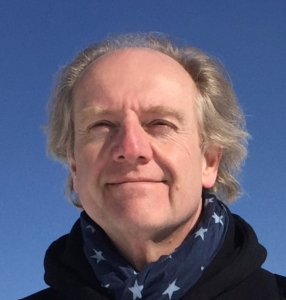

www.ceeshoogendijk.com
mail@ceeshoogendijk.nl
I was happily invited, for a second time, as sometime-professor at the University of Valencia to work with students in the Erasmus program “European Master in Work, Organizational and Personnel Psychology (WOP-P) 2024” for the course Intervention in Organizations, Organizational Change and Development (see photo). My three-day lecture is about contemporary methods of organizational change and development: Appreciative Inquiry interventions.
This LinkedIn post by Bishal Sala gives an impression of how it went. AI, of course, is the perfect practice for a process of “learning by doing”. We designed our own AI-summit on the self-chosen – and essential – topic of Work-Life-Balance.
Fast forward to the individual assignment I created, inspired by Nick Heap and Random Acts of Listening initiative, which turned out to be a great success, highly rewarding for both teacher and students.
Bishal Saha
Inspired by Random Acts of Listening, I wanted to connect with someone entirely different from myself – a true “unusual suspect”. I headed to a nearby park, a serene setting where people often find quiet moments with nature. I noticed an elderly lady, likely in her seventies, walking gently with her small dog. She had an air of calm that captivated me. I decided to approach her. My goal was to engage in an Appreciative Inquiry conversation that would encourage her to share meaningful life experiences, aiming to uncover the insights and wisdom she might offer.
Before speaking to her, I prepared questions that might elicit rich reflections, including:
• “What’s something you’re grateful for at this stage of your life?”
• “What has been a defining lesson or value that you try to live by?”
• “If you could share a piece of wisdom with someone younger, what would it be?”
These questions were designed to create a safe, open space for conversation, allowing her to share insights from her life experience.
The conversation
After gathering the courage, I approached her with a smile and introduced myself, explaining that I was doing a project that involved talking to someone with different life experiences. She smiled and introduced herself as Elaine, introducing me to her dog, Max. Her warmth made it easy to begin, and we started strolling together through the park.
I started by asking, “Elaine, I’d love to hear about something you’re grateful for at this stage of life.” She paused for a moment, watching Max sniff around the grass, and then responded, “I’m grateful for simple joys, like these quiet walks with Max. They’re small moments, but they give me peace and remind me to be present.”
Encouraged by her openness, I asked, “How did you come to appreciate these small moments?” Elaine laughed softly and shared that, as a young mother juggling work, family and household responsibilities, she had rarely had time to slow down. “Back then, I was always running,” she said. “But I learned that life is richer when you stop and appreciate what you already have.” Her words struck a chord, a reminder of the importance of slowing down amidst life’s busyness.
No day is ever wasted
Next, I asked, “Is there a piece of wisdom or life philosophy that has guided you over the years?” Elaine nodded thoughtfully and shared a beautiful piece of advice: “No day is ever wasted if you have loved someone, felt joy, or learned something new”. She explained that this was a principle she’d held close throughout her life, even during hard times, like when she lost her husband a few years ago. “It’s not about achieving something big every day,” she said, “but finding beauty in the little things that make life meaningful.” Her words were profound, revealing her deep appreciation for life’s fleeting moments and connections.
Curious to understand her perspective on relationships, I followed up by asking, “How did kindness and compassion play a role in your relationships?” Elaine’s face softened as she talked about her marriage, her children and, now, her grandchildren. “I’ve always believed in treating people with kindness, even when they’ve hurt you,” she said. “It keeps you at peace with yourself and, I think, in the end it’s what people remember about you.”
At this point, I noticed how Max would look up at her with what seemed like admiration, and I could see how Elaine’s calm presence must have brought comfort to many people in her life. I was moved by her selfless approach to relationships, and her words made me reflect on the importance of kindness in my interactions.
Reflection and learning
After the conversation, I sat on a nearby bench to jot down my thoughts, surprised at how Elaine’s wisdom had affected me. Her life philosophy and simple joys offered a fresh perspective on happiness and contentment. I realized that true fulfillment doesn’t necessarily come from major achievements, but often from small, everyday moments we sometimes overlook. Her statement, “No day is ever wasted if you loved someone, felt joy or learned something new,” has stayed with me as a powerful reminder to seek out joy and learning each day.
This conversation taught me the importance of being present and appreciating life’s little pleasures – a lesson I might not have learned so profoundly if I hadn’t engaged in this appreciative inquiry. Elaine’s openness and willingness to share her experiences as a stranger highlighted the strength of empathetic listening and the connection it fosters, even in brief exchanges.
Conclusion
This exercise was both challenging and rewarding, as it pushed me out of my comfort zone and connected me to someone from a different generation with insights far beyond my own. Through Appreciative Inquiry, I gained a deeper appreciation for the wisdom that comes from lived experience, and I left the park that day with a renewed outlook on life’s small, joyful moments. Elaine’s wisdom on kindness, presence, and love enriched my understanding, and I hope to carry forward her lesson: to slow down, cherish small joys, and make time for meaningful interactions.

